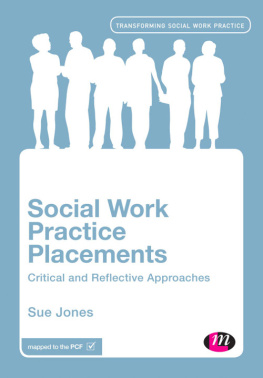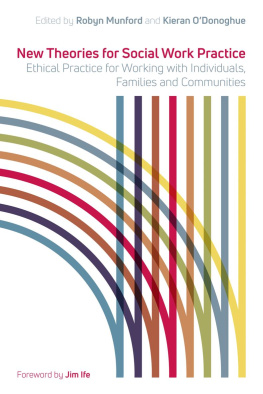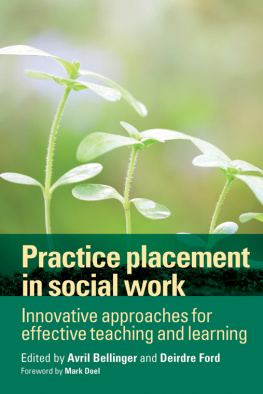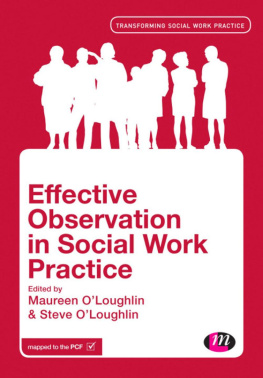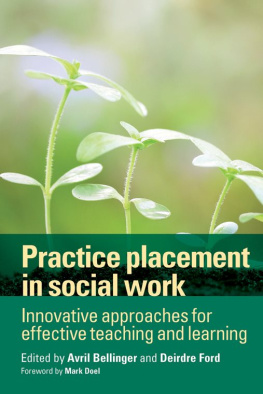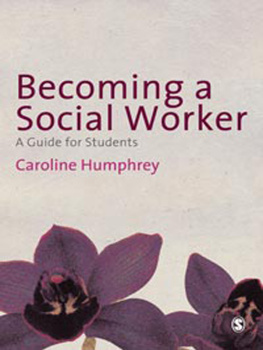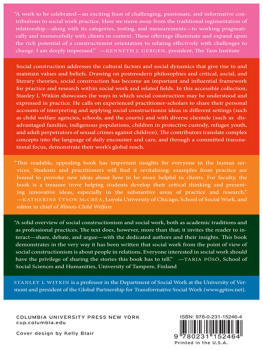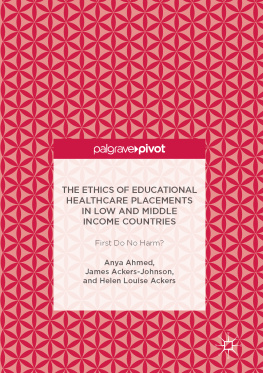SAGE was founded in 1965 by Sara Miller McCune to support the dissemination of usable knowledge by publishing innovative and high-quality research and teaching content. Today, we publish more than 750 journals, including those of more than 300 learned societies, more than 800 new books per year, and a growing range of library products including archives, data, case studies, reports, conference highlights, and video. SAGE remains majority-owned by our founder, and after Saras lifetime will become owned by a charitable trust that secures our continued independence.
Los Angeles | London | Washington DC | New Delhi | Singapore

Sue Jones 2015
First published 2015
Apart from any fair dealing for the purposes of research or private study, or criticism or review, as permitted under the Copyright, Design and Patents Act 1988, this publication may be produced, stored or transmitted in any form, by any means, only with the prior permission in writing of the publishers, or in the case of reprographic reproduction, in accordance with the terms of licences issued by the Copyright Licensing Agency. Enquiries concerning reproduction outside these terms should be sent to the publishers.
Library of Congress Control Number: 2014949772
British Library Cataloguing in Publication Data
A catalogue record for this book is available from the British Library
ISBN 978-1-4739-0223-7
ISBN 978-1-4739-0224-4 (pbk)
Learning Matters
An imprint of SAGE Publications Ltd
1 Olivers Yard
55 City Road
London EC1Y 1SP
SAGE Publications Inc.
2455 Teller Road
Thousand Oaks, California 91320
SAGE Publications India Pvt Ltd
B 1/I 1 Mohan Cooperative Industrial Area
Mathura Road
New Delhi 110 044
SAGE Publications Asia-Pacific Pte Ltd
3 Church Street
#10-04 Samsung Hub
Singapore 049483
Editor: Kate Wharton
Development editor: Lauren Simpson
Production controller: Chris Marke
Project management: Swales & Willis Ltd, Exeter, Devon
Marketing manager: Tamara Navaratnam
Cover design: Wendy Scott
Typeset by: C&M Digitals (P) Ltd, Chennai, India
Printed by: Henry Ling Limited at The Dorset Press, Dorchester, DT1 1HD
At SAGE we take sustainability seriously. Most of our products are printed in the UK using FSC papers and boards. When we print overseas we ensure sustainable papers are used as measured by the Egmont grading system. We undertake an annual audit to monitor our sustainability.
About the author
Sue Jones holds academic and professional qualifications in social work, teaching and sign language. She uses her many years of teaching experience in the UK and Eastern Europe and her numerous contacts with practice agencies over 25 years to inform her understanding of student learning needs in practice. She currently teaches, tutors and assesses on the BA and Masters social work courses at Manchester Metropolitan University. Sue is the English editor of the Lithuanian Journal Special Education published by Siauliai University and has received their Gold Award in recognition of outstanding service collaboration. Her first book Critical Learning for Social Work Students (2nd edition published in 2013 by Sage) serves as a foundation to academic learning and preface to this text.
Series editors preface
The notion that social work practice placements represent those elements of qualifying education that people most remember has been often repeated, but it is nonetheless true for many social workers. In the US, the professional body called the Council on Social Work Education (CSWE) recognized explicitly the importance of the practice placement referring to it as social works signature pedagogy, and in the UK we have embedded placements at the heart of our professional education for students qualifying in social work.
As well as being something that individual students and later qualified practitioners appreciate and remember, it is however the placement that has been the subject of tense and protracted political wrangling. This is something that has moulded and forged our current approaches in the UK, and something that permeates the negotiations and partnership agreements distilled between social work agencies and universities. It is in this political context that Sue Jones offers her valuable perspectives on social work placements. Whilst she writes specifically for the English context, this is valuable and translates across the UK, and indeed adds to the growing lexicon of work relating to practice placements across the world. The general and the specific sit together as we interpret the human condition in context. This book makes an important contribution to assisting social work students to unravel these complexities.
In this important book, Sue Jones adds a deeper critical perspective, something that is much needed since the evidence-base for the value of placements is still nascent. She builds on her earlier work encouraging students to adopt a critical and reflective understanding and this book will stand students in good stead as they begin their journeys into the complex and contorted landscapes of social work.
Jonathan Parker
Director, Centre of Social Work, Sociology & Social Policy, School of Health & Social Care, Bournemouth University
Acknowledgements
I continue to give my thanks to all past and current Bachelor and Master of Arts students at Manchester Metropolitan University who continue to inspire me with their thirst for learning. You are a credit to the social work profession.
To colleagues in the learning and teaching fields from whom critical debate has both urged me onwards and caused me to stop and reflect. Also to Sage publishers, and specifically Luke Block, Lauren Simpson and Kate Wharton, for their support.
Not least to my family: Hollin for your technical expertise; Carrick for your thoughtful conversations and to David for your initial proofreading.
Introduction
This book follows on from, and builds upon, Critical Learning for Social Work Students by the same author. Although it is written primarily for social work students undertaking practice placements, like the first book, the essential nature of the contents are equally applicable to students from other disciplines completing a practice placement in order to qualify in their vocational field. As adult learners we find the most effective and appropriate way to learn is through action rather than being told how to do something. We have a tendency towards applying our experience, skill and knowledge in action. Yet the act of learning how to do social work is highly complex and mired with numerous pitfalls and challenges. In working through the material and exercises in this book you will be exposed to these dilemmas and tensions, and hopefully begin to develop your own informed interpretations of social work in practice during your placements and beyond.






